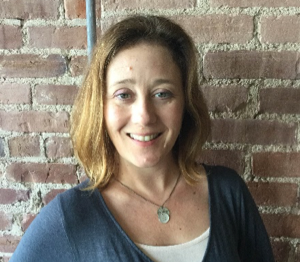
Hi, I’m Tamara Grybko, Program Data & Evaluation Manager at Explora Science Center & Children’s Museum in Albuquerque, NM. I’m also a member of the New Mexico Evaluators Board. I developed an interest in evaluation early on, and I have grown my evaluation skills while serving in various roles in a number of informal learning environments. In this post, I’ll share with you a bit about my learning as the “inaugural” evaluation manager at Explora through working with my colleagues to develop evaluation practice.
Lessons Learned:
- Identify existing efforts. Practitioners of all types engage in implicit evaluation in their work. For me, the very notion of “practice” includes learning from experience. I am reminded of my aunt, a chef and restaurant owner, who looked around the table at the end of one Thanksgiving dinner, smiled and said, “No one used the salt and your plates are empty. That tells me you liked it.” Learning where evaluation was already being practiced, and how my colleagues defined success helped me find my footing.
- Start small. Museums are often very busy places, and time is at a premium. Finding capacity to learn and then do evaluation can understandably seem daunting. Small efforts that focus on what program staff identify as being necessary to know can be good places to start. Gathering participant feedback through sticker-voting walls during events and facilitating short staff debrief sessions following events are a couple low-intensity methods that have helped build participatory evaluation practice.
- Embrace relationships and learning. It would have been impossible for me to do this alone. I knew that going in. What I wasn’t prepared for was the exquisite amount of support that came through. External evaluators provided training workshops, local professionals met for coffee, Explora colleagues made connections or wanted to chat about programs, the list is humbling. As our learning continues, these relationships will make all the difference.
Rad Resources:
- Identify existing efforts. The AI (Appreciative Inquiry) Commons were and continue to be indispensable. The Art of Focused Conversation by R. Brian Stanfield is my go-to when I need to plan a learning discussion.
- Start small. Team-Based Inquiry (TBI) is a quick-turnaround evaluation cycle for program and practice improvement, developed for the Nanoscale Informal STEM Education Network (NISENET). Explora currently uses TBI in one of its larger initiatives, and is supported in this work by an external evaluator.
- Embrace relationships and learning. The Visitor Studies Association and org have a slew of resources to support evaluation practice. Reflecting on Practice from the Lawrence Hall of Science and iPAGE at the Science Museum of Minnesota are two professional development experiences that have informed my approach.
The American Evaluation Association is celebrating New Mexico (NM) Evaluators (www.nmeval.org) Week. Do you have questions, concerns, kudos, or content to extend this aea365 contribution? Please add them in the comments section for this post on the aea365 webpage so that we may enrich our community of practice. Would you like to submit an aea365 Tip? Please send a note of interest to aea365@eval.org. aea365 is sponsored by the American Evaluation Association and provides a Tip-a-Day by and for evaluators.
